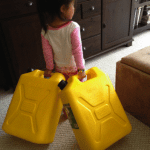I’ve published pieces from time to time by my friend Mark Goldblatt, a professor and novelist whose work I’ve enjoyed. I’m very pleased to publish this story and reflection for Mother’s Day from Mark:
*
Living Memory
By Mark Goldblatt
On May 15th 1944, the front page of the New York Times carried a brief dispatch from the war in Europe. It told the story of an American B-17, on a bombing run over Laon, France, that was struck by a bomb accidentally released by another American plane flying in formation above it. The bomb wedged in the tail of the Flying Fortress, killing the tail gunner, but didn’t explode. “Although the plane was almost unmanageable,” the dispatch read, “the crew stayed with the ship.” Terrified the bomb would detonate during what promised to be a bumpy landing, the four surviving crewmen tried in vain to dislodge it while the pilot, Lieutenant Burdette “Buddy” Williams, guided the wounded plane back to its base in England. The bomb was still in the tail when the plane touched down.
For their actions, the entire crew was awarded the Soldier’s Medal for Valor. I’m sitting here, typing these words, staring at Buddy Williams’s medal. I inherited it from my mother, Leona Goldblatt, who once was Leona Williams.
It was Buddy — not my father — who was the great love of my mom’s life.
She mentioned Buddy to me for the first time in the mid 1980s, five years after my father’s death. Details came in drips and drabs at first. The fact that she even had a first husband. The fact that he was a hard-drinking, motorcycle riding daredevil pilot. The fact that she divorced him after the war because of his boozing. The fact that she remarried him several years later when he sobered up. The fact that she divorced him again when he fell off the wagon.
Then, towards the end of her life, she began to open up. She talked about the time Buddy buckled her into the front seat of an open cockpit crop duster, handed her a pair of oversized aviator goggles, and took her on a series of barrel rolls–as she screamed herself hoarse with only the seatbelt holding her in the plane. She talked about the time, during the war, when she and another pilot’s wife drove from Ohio to Florida to follow their husbands . . . managing the entire distance, despite fuel rationing, by flirting with gas station attendants. “Just flirting,” she added.
So I knew some of the stories. But I had no tangible evidence of her life with Buddy until I flew down to Florida in November 2003, after Mom entered a hospice. She was 80, dying from acute emphysema and from a ventral hernia which had swollen her abdomen out like a cantaloupe and necessitated, in the last year of her life, her wearing maternity pants. By the time I got to her bedside, she was doped up and sleeping sixteen hours at a stretch. Whenever she came to, she’d ask my sister Gail or one of my nieces for a sip of water, or a taste of cherry Jello–which she’d acknowledge afterwards with an exaggerated “Ahhhh.” The skin of her arms, from her elbows to her fingertips, had turned purplish black, and she’d sometimes stare at her hands, as if trying to decide if they were really hers; other times, she had just enough strength to clasp our hands if we slid them underneath her palms.
Gail and I alternated vigils, so she never woke up alone. That turned out to be both a blessing and a curse. The Wednesday night after I arrived, as Gail was dozing off in a folding chair, Mom suddenly sprang up from her bed, pulled off her oxygen mask, unhooked her catheter, and began putting on her street clothes. She tapped Gail on the shoulder to tell her she was leaving. “I’ve got to get out of here,” she explained. Gail squinted up at her and thought she was dreaming; Mom hadn’t had enough strength to sit upright for a week, but now she was pacing back and forth across the hospice room, searching for her purse. When the reality of what she was watching sank in, Gail jumped up and hugged her for several minutes, until the fit passed, then laid her back down on the bed. Then she curled up beside her until Mom fell back asleep–after which Gail wept until morning.
My worst moment came Friday afternoon, a couple of days later. The head nurse, a tall thin black woman with the weariest, wisest eyes I’d ever seen, mentioned that dying patients were often listening even when they seemed fast asleep; she suggested talking to Mom about heaven, about re-uniting with her loved ones. It sounded like a good idea, or at least a nothing-to-lose idea; at minimum, it would break the monotony of watching her sleep. So I told her a story she loved to tell me, her earliest memory; I tried to tell it to her the way she did, with the details she used to dwell on: Do you remember that drive through the Ozarks, back in the summer of ’28? How your daddy pulled over by the roadside watermelon stand, how you and Sophie and Tillie and Bertha and Herman and Pete waited in the back of the Willis Knight while he bought that great big watermelon? Do you remember the jump seat you were sitting on, how you loved to feel the bumps in the road? Then came the moment your momma said it was all right to get out, and the six of you poured out of that back door and onto the grassy bank next to the stream. Do you remember that? How cool the grass was after the heat of the ride? How your momma handed out the turkey sandwiches she’d made back home in Shreveport? Do you remember the watermelon, the way your daddy tied a rope around it and sank it into the stream to chill, the way he carved it up after lunch with that long knife of his? You always said that was the best you ever ate . . .
As I finished the story, my mom began to smile. Her eyes were sliding back and forth beneath her eyelids. She was back there, beside that stream, eating that watermelon. So I counted the experiment a success and began to regale her with more stories from her childhood, back when she was Little Lonie Meyer, the tiny terror of Louisiana Avenue. Falling out of a tree house in her backyard, slinging stones at bumblebees and then dashing for cover, setting fire, accidentally, to the family garage. (She swore that she wasn’t smoking!) Every story I could recall, every detail of every story, I told her. How, when she was six years old, playing Cowboys and Indians, waving a wooden arrow, patting her open mouth and yelling woo, woo, woo, she tripped and fell–and wound up with the arrow broken off in her throat. How, when she was eight, playing Cops and Robbers, she tried to arrest an older male cousin; how, when he wouldn’t go quietly to their make-believe jail, she ran back into the house, grabbed her b.b. gun, marched back outside, and shot him in the leg.
Towards the end, however, the expression on her face changed. I didn’t notice it at first; I was too involved in the storytelling. But then she let out a low moan that ran through me like an electric current. She was rolling her head side to side on pillow, clutching at the bed sheet with her blackened fingers. Then, suddenly, she cried out, “Momma!”
“What the matter, Mom?”
“Oh no oh no oh no . . .”
I jumped up from the chair. “Is something wrong? Are you in pain?”
“Help me!” she cried. “Please, Momma, help me!” She was thrashing back and forth now. I held her by the shoulders. I could feel her weakened muscles working against my grip.
“You’re in Florida, Mom,” I said, with as much force as I could manage without raising my voice. “It’s Mark. I’m right here. You’re okay.”
“Please, Momma!” she screamed, with tears rolling down her face. “Please help me, Momma!”
I ran out of the room and sprinted towards the nurses’ station at the end of the corridor. Three nurses, including the head nurse, were chatting behind the desk as I drew near. I yelled at them, “She’s in pain!”
“Your mother?” the head nurse asked.
“Help me,” I gasped. “She’s suffering.”
The head nurse rushed out from behind the desk and followed me back to the room. By the time we got there, Mom was curled up in a fetal position, sobbing. The nurse checked her vital signs, then held the back of her hand to her brow.
“It’s all right,” she said. “She’s just hallucinating.”
“She was crying out for her mother.”
“That happens sometimes. It’s the Demerol.”
“You told me to talk to her about her family.”
“It’s not as bad as you think,” she said. “It’s worse on you than on her.”
With that, she left the room. I sat down again beside the bed and, for the next hour, listened to my mother cry out for her mother. It was the longest hour I’ve ever lived. The terror in her voice, the reservoir of mortal dread I’d accidentally opened within her, the guilt of that hour I’ll carry with me to my grave. Afterwards, when she’d exhausted herself and was resting again, I filled up the sink in the bathroom with cold water and put my face in it. Then I took a towel off the wall, dried my face with it and screamed into it until nothing more came out.
My guts were still churning at sunset when Gail showed up for the night shift with unsettling news; she couldn’t find a record of the funeral arrangements for which Mom had prepaid two decades earlier. It was a point of pride with my mom; she’d shelled out thousands of dollars in the rush and confusion after my father died. “You and Gail won’t have to pay a penny when I go,” she would say, apropos of nothing, at least once per visit.
“What about the funeral home?” I asked Gail. “They must have records.”
But she had called them. They had no records. Neither did the cemetery itself–even though my mom and I had stepped over her pre-engraved headstone whenever we visited my dad’s grave. Hers was right next to his, which read Morris Goldblatt 1911-1979. Hers read Leona Goldblatt 1923- The last date, I now knew, would be2003. But I needed to turn up that funeral contract among her papers–or else we’d be back at square one when she died.
The job was nightmarish. My mother was a pack rat; I found grocery coupons from the 1980s, a warranty for black and white television purchased at Masters Department Store in Flushing, Queens in 1971, and every report card my sister and I ever brought home . . . and that was just in the top left drawer of her dresser. There was no rhyme or reason to it. Slips of note paper with phone numbers but no name were mixed with un-cancelled postage stamps that she’d cut from the envelopes on which they’d been glued and embossed invitations to weddings in which both the bride and groom were long deceased. I found a half dozen loose buttons, three yellow thimbles and a bent belt buckle.
I was at it for three hours when I came across a scrap book I’d never seen before. It was from her life with Buddy. Anxious for a distraction, I began to page through it. Among the matchbooks, crushed flowers and old photos, I found the yellowed Times front page and the war medal. Proof of a life more adventurous, dramatic, more (no use denying it) romantic than my own.
I sat on the floor of her condominium with that scrap book on my lap for half the night. I’d had enough of my mother dying. I wanted to think about her living, about her young and pretty and in love with a drunken flyboy. If that meant I had to pay again for her pre-paid funeral, so be it. I was done looking for that contract. I phoned Gail at the hospice and told her.
The next morning, however, as I was about to leave for the day shift, my niece Melissa drove up in red pickup truck and pulled into the guest parking space in front of the condominium. She had her younger sister Jessica with her. Gail had dispatched them to take up the search for the missing contract. Looking at the two of them, twenty-one and seventeen years old, as they hopped out of that red truck, flush with life, flush with expectations, certain, beyond a shadow of a doubt, that between the two of them they’d find that damn contract, I realized I was looking at my mom’s spirit, her undying legacy, her donation to the planet.
When I showed up for my turn at the hospice, Gail was waiting for me outside the door to my mom’s room. She was smiling at me in an indecipherable way. I smiled back at her and said, “What is it?”
She didn’t answer but slid open the door. Mom was sitting up in bed, talking to the head nurse as she switched bags on the IV drip connected to her arm. She glanced up as I walked into the room and said, in a lucid but slurred southern drawl, “You’re looking thin, boy.”
I laughed. “So are you.”
“Ain’t that the truth!”
As awful as Friday had been, Saturday afternoon turned out to be one of the great graces of my life. My mom’s favorite sport was football. She lived for it, devoted her weekends to it each fall and winter, and thought she knew more about it than anyone else. That Saturday, Mom and I watched one last college game together. I don’t recall which teams were playing–she kept insisting that one of them was her beloved LSU Tigers, though it wasn’t. She even made an attempt, after one team scored, to lift both her arms and signal a touchdown. During halftime, Melissa and Jessica showed up at the hospice. Melissa was waving a manila envelope at me as she walked into the room–the funeral contract. They gave their grandmother long hugs, and then the three of us sat around her bed and watched the rest of the game.
After it ended, my mom clapped her hands with great satisfaction and said, “So I guess LSU’s got a team this year.”
“I guess so, Mom.”
For the record: LSU won the national championship that year.
There’s an expression in football which goes: You don’t want to leave anything on the field. What it means is that, whether you win or lose, you don’t want to come off the playing field after the game ends wondering if there was something else you could’ve done. You don’t want to be sitting in the locker room afterwards thinking, I should’ve tried this or If only I’d have thought of that . . .
Well, my mom didn’t leave anything on the field.
It’s what I said in her eulogy the following week.
*
 Mark Goldblatt’s most recent novel is Finding The Worm (Random House). He teaches religious history at Fashion Institute of Technology/SUNY.
Mark Goldblatt’s most recent novel is Finding The Worm (Random House). He teaches religious history at Fashion Institute of Technology/SUNY.
















